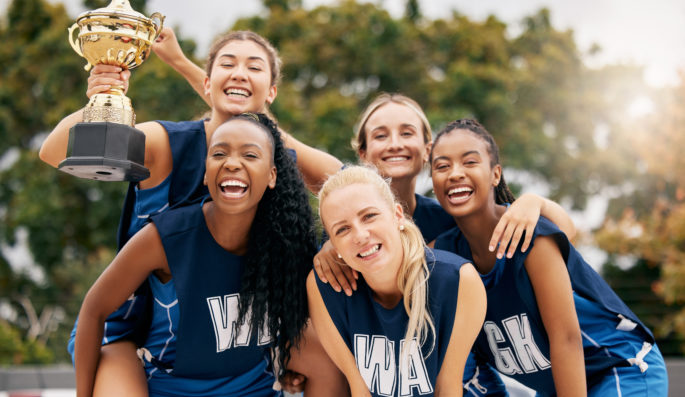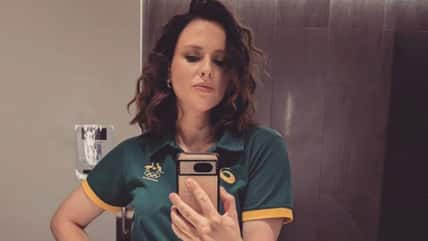Senators Introduced A Bipartisan Resolution To Recognize National Girls & Women In Sports Day, Calling It “A Chance To Recommit To Leveling The Playing Field”

On February 1, a bipartisan resolution was introduced recognizing National Girls & Women in Sports Day (NGWSD).
This move was backed by California Senator Dianne Feinstein, West Virginia Senator Shelley Moore Capito, and Washington Senators Patty Murray and Maria Cantwell.
The resolution voiced support for the observation of National Girls & Women in Sports Day on February 1, 2023. Within the document, the senators detailed how NGWSD began in 1987 to acknowledge the success and progress of women and girls in sports.
“From soccer fields to hockey rinks to basketball courts, American women and girls have excelled at every level of sports since the passage of Title IX. National Girls & Women In Sports Day is a chance to celebrate those accomplishments and encourage more young girls to get out and play,” Senator Feinstein said.
“It is also a chance to recommit to leveling the playing field, ensuring that women’s and men’s sports are treated equally.”
So, this year marks the 37th anniversary of NGWSD– with the resolution raising awareness about a plethora of issues within the female sports world.
Inside, the senators illuminated numerous shortcomings that women and girls still face. For instance, despite the participation of high school girls in sports increasing sixfold since Title IX was enacted, teen girls are still given fewer athletic participation opportunities than high school boys.
Other issues broached by the resolution included the still-low numbers of female collegiate athletes, the lack of diversity among female collegiate athletes, and the decline of female coaches.
“In 1971, women coached 90 percent of collegiate women’s teams, but as of 2023, women coach only 41 percent of all National Collegiate Athletic Association (NCAA) women’s teams, and BIPOC women represent only 7 percent of head coaches,” the document stated.

Talia M/peopleimages.com – stock.adobe.com – illustrative purposes only, not the actual people
“There is a need to restore women to those positions to ensure fair representation and provide role models for young female athletes.”
So, through the resolution, the senators supported the observation of NGWSD on February 1, as well as “marking the observation of National Girls & Women in Sports Day with appropriate programs and activities– including legislative efforts.”
Finally, support was also shown for all ongoing efforts to promote gender equity in sports and expand athletic opportunities and participation for all girls and women.
“Sports has the power to inspire us, and our country is better when women are empowered to participate and compete,” Senator Cantwell said.
Along with Senators Feinstein, Capito, Cantwell, and Murray, the resolution was also cosponsored by Senators Mazie K. Hirono, Marsha Blackburn, Susan Collins, Kyrsten Sinema, Maggie Hassan, Tammy Baldwin, Tammy Duckworth, and Amy Klobuchar.
To read the complete resolution, visit the link here.
If true crime defines your free time, this is for you: join Chip Chick’s True Crime Tribe
Sign up for Chip Chick’s newsletter and get stories like this delivered to your inbox.
More About:Sports





